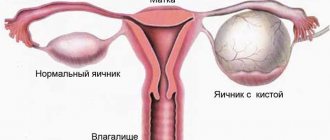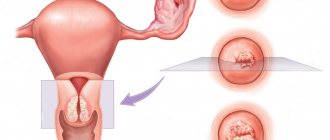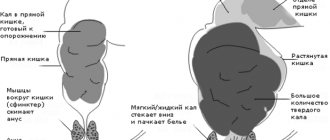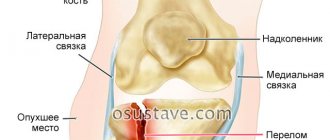Delayed menstruation is one of the earliest signs of conception. However, the absence of menstruation on time does not always indicate pregnancy. Sometimes the delay is a consequence of stress, emotional stress, hormonal imbalance or other pathology.
All girls and women of reproductive age should carefully monitor their cycle. For greater accuracy, gynecologists recommend keeping a special calendar that indicates the start and end date of each menstrual bleeding. The regularity of the cycle indicates the proper functioning of the reproductive system.
Menstrual cycle
Menstrual cycle
- a set of changes in a woman’s body aimed at the ability to conceive. Its regulation is carried out using a complex hormonal mechanism.
The average length of the menstrual cycle is 28 days. However, its length in healthy women can be shortened to 21 days or extended to 35 days.
Ovulation is the process of release of the female reproductive cell from the ovary into the free abdominal cavity. This event corresponds to the middle of the menstrual cycle - days 12-16. During ovulation and 1-2 days after it, the female body is ready to conceive a child.
Menarche is the first menstrual cycle in a girl’s life and marks the beginning of the reproductive activity of the female body. Typically, this event occurs between the ages of 11 and 14 years, but the norm is considered to be from 9 to 16 years. The time of menarche depends on many reasons - genetics, body type, diet, general health.
Menopause or menopause is the last menstrual cycle in life. This diagnosis is made post facto, after 12 months of no bleeding. The normal range for the onset of menopause is considered to be from 42 to 61 years, with an average of 47-56 years. Its onset depends on the number of pregnancies, the supply of eggs, the use of oral contraceptives, and lifestyle.
Menstruation or menstruation is a part of the female cycle characterized by the development of uterine bleeding. Normally, its duration is from 3 to 7 days, on average - 4-5 days. Menstruation represents the shedding of the endometrium of the uterus - its inner mucous layer.
Due to menstruation, the uterine endometrium is renewed. This process is necessary to prepare the organ wall for the next cycle, in which conception is possible.
Delayed menstruation is considered to be its absence for more than 6-7 days during a normal cycle. A shorter period is not considered a pathology. Normally, cycle shifts by 2-3 days are possible. Delayed menstruation can occur in women and girls of any age due to natural (physiological) and pathological reasons.
Reasons for delayed periods in the summer in the heat
Every time your period comes at the wrong time, a woman begins to worry, there may be several reasons for this:
- Pregnancy . This is the most common reason and reason to immediately contact a gynecologist.
- Lactation . It is known that during lactation, the body of a young mother produces the hormone prolactin, which is the cause of the delay. After finishing feeding, the cycle is restored.
- Adolescence . Girls have an unstable cycle in the first year from the start of menstruation.
- Climax . In women after 50 years of age, delays appear, the discharge becomes less and less, and then stops flowing altogether.
- Long-term use of hormonal drugs . After the end of treatment, everything will be restored in 2-4 months.
- Obesity . The disease often provokes a delay in menstruation, this happens because the woman’s body begins to produce androgens instead of estrogens.
In the heat of summer, in addition to these reasons, there may be the following:
- Climate change . Due to a sharp rise in air temperature, the body experiences stress, which leads to hormonal imbalance. This can happen once, after acclimatization of the body everything will improve, and sometimes it repeats from year to year every summer.
- Increased physical activity . Working in the garden, strenuous exercise, running or swimming can also lead to delays. The solution to the problem in this situation will be to give up grueling training and switch to a more gentle regime.
- Dystrophy . By the opening of the beach season, as a rule, general weight loss begins, and if the weight drops to critical levels, then menstruation may be very late or stop altogether.
Whatever the reason for the delay, it is necessary to undergo an examination, establish a diagnosis and begin treatment.
Reasons for missed periods
Stress
Regulation of the menstrual cycle is a complex process that depends on many factors in the internal environment of the body. The functioning of the hormonal system is very susceptible to stress and emotional upheaval. This feature is the result of the close interaction between the endocrine glands and the brain.
Psychological and emotional stress is an unfavorable environment for pregnancy. This is why the brain gives a signal to the endocrine system that conception should not occur. In response to this, the hormonal glands change their mode of operation, preventing the onset of ovulation.
A delay in menstruation can be caused by various stresses. Some women calmly endure severe shocks (the death of a loved one, diagnosis of an illness, dismissal from work, etc.). In some patients, the absence of menstruation may be associated with minor experiences.
Possible causes of missed periods also include severe lack of sleep and overwork. To restore the cycle, a woman should eliminate the provoking factor. If this is not possible, the patient is advised to consult a specialist. Usually, a delay in menstruation during stress does not exceed 6-8 days, but in severe cases, it may be absent for a long time - 2 weeks or more.
Heavy physical activity
By its nature, the female body is not adapted to strong physical activity. Excessive forceful tension can cause disruptions in the menstrual cycle. Such disorders of the reproductive system are quite often observed among professional athletes.
The reason for the delay of menstruation during heavy physical activity is the production of increased amounts of testosterone, the male sex hormone. Thanks to it, muscle tissue can grow in response to its tension. Normally, the female body contains a small amount of testosterone, but its increase leads to disruptions in the menstrual cycle.
High levels of testosterone affect the complex mechanisms between the pituitary gland and the ovaries, which disrupts their interaction. This leads to a lack of ovulation and delayed menstrual bleeding.
If there are disruptions in the menstrual cycle, a woman should avoid strength training. They can be replaced with aerobic exercises - dancing, running, yoga.
What are the reasons for a delay in menstruation?
Climate change
Sometimes the human body has difficulty adapting to new living conditions. A sudden change in climate can cause menstrual irregularities. This feature is most often observed when traveling to hot and humid countries.
Changes in environmental conditions are a signal of the need to prevent conception. This mechanism is similar to the delay of menstruation during emotional stress and shock. The brain sends a signal to the ovaries to block ovulation.
Another reason for a missed period with a negative pregnancy test is prolonged exposure to the sun. Ultraviolet rays have a negative effect on the functioning of the ovaries. A delay may occur if you abuse the solarium.
Causes of delayed menstruation
The move itself can lead to a delay in menstruation after a trip to the sea. Often moving from one city to another, transfer to the airport is planned for the night, in order to save time on vacation. Sleeping in an uncomfortable position on a bus cannot be called complete, and some people prefer to give it up altogether. Melatonin, which is produced during sleep, indirectly affects the synthesis of sex hormones. Staying awake during the move disrupts the cyclical production of hormones, as a result - there are no periods after the vacation.
In the case of a holiday at sea, a sharp change in climate , if the holiday was planned in a climatic zone different from the place of residence. Flying from winter to hot summer, changing time zones with a significant time shift, or vacationing in the opposite hemisphere are extremely stressful. Returning home to familiar conditions after 10-14 days serves as a new shake-up for the body.
Don't forget about changing your diet . A trip to a hotel where meals are provided in the form of an all-inclusive buffet opens up a large number of temptations. It is very difficult to limit yourself when there are so many delicious dishes in front of your eyes. Many women note that after vacation they add a few extra pounds. Adipose tissue is hormonally active, so its increase can lead to missed periods after the sea.
Increased physical activity can also lead to delayed menstruation. If a girl does not train for a year, is busy with a sedentary job, and during the holiday period she can go on a long hike, swims and moves a lot, then the reproductive system will react with a disruption of the menstrual cycle.
Holidays at sea, especially for single women, become a period of new sexual acquaintances and connections. Regular sex life during vacation and its absence after can lead to changes in the cycle.
Emergency contraception , which is used after unprotected sexual intercourse, can disrupt the menstrual cycle Postinor and Escapel are drugs with a high dose of the hormone and disrupt the normal cycle. Therefore, they are not recommended to be used more than once within one cycle; they can lead to acyclic uterine bleeding and cycle failure.
Women who are protected with combined oral contraceptives sometimes forget to take the pill on time and mess up their own schedule. Therefore, a delay in menstruation at sea is natural.
The reason for a delay in menstruation after a vacation may be trivial - a sexually transmitted infection that was transmitted after unprotected sex. On vacation, even with your loved one, do not forget about contraception. A condom is the most effective method of preventing STIs. Those who do not like the sensation of using it are recommended to use spermicidal agents that protect against infectious pathogens and unwanted pregnancy.
The end of the holiday season leads to an increase in sales of pregnancy tests. Some women, relaxing at sea, manage to get pregnant there. Therefore, if your period does not come after a vacation, you can suspect pregnancy .
Sometimes women cannot get pregnant for several years, undergo various treatments, but still do not achieve any results. Sometimes such a shock in the form of long-distance flights to overseas countries with a different climate, stress, although positive, has a beneficial effect on a woman’s body and “reboots” reproductive functions; after a vacation, an unexpected and long-awaited pregnancy can occur.
What is acclimatization and what is its effect on the body?
Acclimatization is the process of getting used to and adjusting the body to the changed parameters of the surrounding world. The sharper the transition from one temperature regime, humidity, or time zone to other values of the same parameters, the higher the likelihood of failure in the functioning of various systems. Therefore, acclimatization can also significantly change menstruation. The reproductive system is the most sensitive of all components of the body.
Changing environmental conditions can also contribute to the exacerbation of diseases. And this is another reason for cycle disruption in any form, the main source of which will also be acclimatization.
Advice from a gynecologist
During the summer heat, it is necessary to be especially careful about maintaining personal hygiene. Firstly, the woman’s immune system is weakened, and secondly, an open cervix does not prevent the penetration of infection, and increased ambient temperature promotes the development of microbes. Therefore, it is important to listen to the following tips:
- You need to wash yourself twice a day. This must be done correctly - from front to back.
- Change hygiene products on time. Pads - every 2-3 hours, tampons - according to instructions, frequent changes can lead to the development of toxic shock.
- It’s worth stopping visiting the beach and pool for a while.
- Do not take a hot bath, only shower.
- Do not use synthetic underwear.
If you adhere to these basic rules, you can feel confident even on critical days and not be afraid of unpleasant consequences.
Probable nature of cycle disorders
The first thing a woman will pay attention to when changing living conditions is whether there may be a delay in menstruation due to acclimatization. The cycle is known to be controlled by hormones. Deviation of their values in any direction shifts the timing of the arrival of critical days. Acclimatization begins with moving or flying, which in themselves are stress that can slow down the functioning of hormone-producing organs. After all, influencing factors that were previously absent become:
- Increase and decrease in air temperature;
- Other humidity values;
- Different time zone;
- Changes in atmospheric pressure.
During the flight, radiation is also added to them, which under normal conditions is much lower.
Why are my periods heavy in the heat?
Menstruation varies in duration and volume, but it is considered normal when a woman loses no more than 70-90 ml in 3-6 days. If more, then this is a pathology. There may be several reasons:
- Thyroid dysfunction , since it is responsible for the production of estrogen, disturbances in its functioning can cause heavy menstruation.
- Heredity . If any of the women in the family had similar problems, then they will probably recur.
- Gynecological diseases often cause increased secretion during menstrual periods, including in the summer.
- Poor blood clotting . Clots and heavy menstruation are very characteristic of this pathology.
- Poor nutrition . In the summer, due to the desire to lose weight, many girls adhere to mono-diets, for example, drinking only kefir, and consuming one product for several weeks can negatively affect the nature of menstruation.
Lack of menstruation
If a woman requires acclimatization, does not have periods for quite a long time, but is feeling unwell and other negative signs, it is probably not only the change in living conditions that is to blame. Exacerbation of chronic diseases in this case is more likely than in complete rest. If a woman changes her temperature and other living conditions, her immunity will noticeably decrease.
And it doesn’t matter whether she moved from cold to hot or vice versa. And all this is another blow to hormonal levels. Acclimatization in this case can prolong the absence of menstruation for a long time. So you will have to recover with the help of doctors.
Delayed menstruation climate change
Delayed menstruation is one of the earliest signs of conception. However, the absence of menstruation on time does not always indicate pregnancy. Sometimes the delay is a consequence of stress, emotional stress, hormonal imbalance or other pathology.
All girls and women of reproductive age should carefully monitor their cycle. For greater accuracy, gynecologists recommend keeping a special calendar that indicates the start and end date of each menstrual bleeding. The regularity of the cycle indicates the proper functioning of the reproductive system.
Content:
Menstrual cycle
- a set of changes in a woman’s body aimed at the ability to conceive. Its regulation is carried out using a complex hormonal mechanism.
The average length of the menstrual cycle is 28 days. However, its length in healthy women can be shortened to 21 days or extended to 35 days.
Ovulation is the process of release of the female reproductive cell from the ovary into the free abdominal cavity. This event corresponds to the middle of the menstrual cycle - days 12-16. During ovulation and 1-2 days after it, the female body is ready to conceive a child.
Menarche is the first menstrual cycle in a girl’s life and marks the beginning of the reproductive activity of the female body. Typically, this event occurs between the ages of 11 and 14 years, but the norm is considered to be from 9 to 16 years. The time of menarche depends on many reasons - genetics, body type, diet, general health.
Menopause or menopause is the last menstrual cycle in life. This diagnosis is made post facto, after 12 months of no bleeding. The normal range for the onset of menopause is considered to be from 42 to 61 years, with an average of 47-56 years. Its onset depends on the number of pregnancies, the supply of eggs, the use of oral contraceptives, and lifestyle.
Menstruation or menstruation is a part of the female cycle characterized by the development of uterine bleeding. Normally, its duration is from 3 to 7 days, on average - 4-5 days. Menstruation represents the shedding of the endometrium of the uterus - its inner mucous layer.
Due to menstruation, the uterine endometrium is renewed. This process is necessary to prepare the organ wall for the next cycle, in which conception is possible.
Delayed menstruation is considered to be its absence for more than 6-7 days during a normal cycle. A shorter period is not considered a pathology. Normally, cycle shifts by 2-3 days are possible. Delayed menstruation can occur in women and girls of any age due to natural (physiological) and pathological reasons.
Regulation of the menstrual cycle is a complex process that depends on many factors in the internal environment of the body. The functioning of the hormonal system is very susceptible to stress and emotional upheaval. This feature is the result of the close interaction between the endocrine glands and the brain.
Psychological and emotional stress is an unfavorable environment for pregnancy. This is why the brain gives a signal to the endocrine system that conception should not occur. In response to this, the hormonal glands change their mode of operation, preventing the onset of ovulation.
A delay in menstruation can be caused by various stresses. Some women calmly endure severe shocks (the death of a loved one, diagnosis of an illness, dismissal from work, etc.). In some patients, the absence of menstruation may be associated with minor experiences.
Possible causes of missed periods also include severe lack of sleep and overwork. To restore the cycle, a woman should eliminate the provoking factor. If this is not possible, the patient is advised to consult a specialist. Usually, a delay in menstruation during stress does not exceed 6-8 days, but in severe cases, it may be absent for a long time - 2 weeks or more.
By its nature, the female body is not adapted to strong physical activity. Excessive forceful tension can cause disruptions in the menstrual cycle. Such disorders of the reproductive system are quite often observed among professional athletes.
The reason for the delay of menstruation during heavy physical activity is the production of increased amounts of testosterone, the male sex hormone. Thanks to it, muscle tissue can grow in response to its tension. Normally, the female body contains a small amount of testosterone, but its increase leads to disruptions in the menstrual cycle.
High levels of testosterone affect the complex mechanisms between the pituitary gland and the ovaries, which disrupts their interaction. This leads to a lack of ovulation and delayed menstrual bleeding.
If there are disruptions in the menstrual cycle, a woman should avoid strength training. They can be replaced with aerobic exercises - dancing, running, yoga.
What are the reasons for a delay in menstruation?
Sometimes the human body has difficulty adapting to new living conditions. A sudden change in climate can cause menstrual irregularities. This feature is most often observed when traveling to hot and humid countries.
Changes in environmental conditions are a signal of the need to prevent conception. This mechanism is similar to the delay of menstruation during emotional stress and shock. The brain sends a signal to the ovaries to block ovulation.
The nature of menstruation during climate change
Disturbances in hormonal balance when climate conditions change can be of a different nature and affect not only the timing of the menstrual cycle, but also other features of menstruation. Since most often this is a slowdown in the functioning of substance-producing organs, and therefore a lack of them, acclimatization makes scanty periods more likely. With a deficiency of hormones, the endometrium develops not only at a slower pace, but also its growth potential is reduced. Consequently, there will be significantly less discharge during its rejection.
delay of menstruation due to climate change
Hello, I have a 2nd pregnancy of 12 weeks (the 1st had a spontaneous abortion at 4-5 weeks, but then I didn’t know that I was pregnant and my body was under a lot of stress on the eve of the termination, even the delay was taken as a consequence of stress and stress. Then I took a test, it turned out positive, and after 2-3 days my period began). With the current pregnancy I had an ultrasound twice, on the 9th and 12th. Everything is developing in the right direction. On G’s recommendation, just in case, when I found out that B this time, I started drinking Utrozhestan. I felt fine all this time. There was almost no toxicosis, so slight nausea in the morning 2 times a week and vomiting maybe 4 times during the entire period. Now there is nothing at all. With the exception of one visit to the doctors - At the 10th week, my back started to hurt badly (in principle, even before B, it sometimes bothered me), and the pain radiated to my stomach (as it turned out later). I decided to play it safe, they did an ultrasound, they said the uterus was in good shape, and 3 gynecologists looked at it (I went to the emergency room) and said that they didn’t see a threat, but the ultrasound specialist said the opposite, that he saw a slight threat. They left me in the hospital for a couple of days to observe, blood and urine tests were good. I ate noshpu and viburkol under the supervision of doctors. On the 3rd day they offered me another week to rest with them, but I refused. I received a note in the discharge, was admitted with a threat, and was discharged with the pregnancy still intact. Suddenly. And an hour before writing the extract, they were going to “treat” me for another week. My G says that most likely they were playing it safe due to the fact that 1st B was interrupted. The ultrasound geneticist who is observing me said that the uterus in good shape could be from anything, from the fact that she was nervous, that there was something serious there, or pain in the back was causing a spasm (the stomach hurt) to a reaction to the ultrasound itself and the most the main condition of the cervix.
At week 13 we were planning to go on vacation; we booked it before B. The plane ride was 3 hours, then a 24-hour break and another 3 hours. This is Europe, in principle there is no big change in climate except for vacations by the sea. The air temperature there now is the same as ours.
Do you think I can fly now? My G doesn’t see any contraindications to vacations or to the sea, and she treats airplanes with distrust, but the reasoning is only that we are doctors of the older generation who like to play it safe….
How to reduce the impact of acclimatization
Since acclimatization does not have the best effect on menstruation, it makes sense to look for ways to reduce the reproductive system’s dependence on it. There are some rules suggested by experts:
- Taking vitamins, which should be started a couple of weeks before the trip. The complex of substances will help maintain immunity at the proper level, and therefore minimize the likelihood of hormonal imbalance. Vitamins E are especially important, promoting the production of FSH and LH, and C, which reduces the risk of infection and strengthens blood vessels. The latter is important, since menstruation, which begins during acclimatization, may be heavier than usual, which is undesirable on vacation;
- Uninterrupted night sleep. If anxiety interferes with this, you can take sedative natural remedies. Adequate rest will prevent overstimulation of the central nervous system, which also affects hormonal balance;
- Eat high-calorie foods and drink enough fluids. It is not necessary to overeat, but the necessary diet and plenty of drinking will ensure the normal functioning of the body and prevent stress;
- Elimination of alcohol and tobacco during this period of life. Ethanol and nicotine tars can make menstruation during acclimatization completely intolerable due to the negative effect on blood vessels and the central nervous system;
- Normal physical activity. Walking in the air, swimming, yoga will enable the body not to fall out of its usual conditions and support the immune system;
- Preventing exacerbation of existing diseases and other infections. Do not forget, especially deliberately, skip taking medications if they are needed constantly.
Acclimatization and menstruation are an unpleasant coincidence. But there are always ways to prevent a trip from harming women’s health and preventing menstruation from spoiling the trip. And the main one is to always take care of yourself, and not just on the eve of the event.
50% of women experience menstrual irregularities after taking these pills. . Could there be a delay in menstruation due to acclimatization?
Cycle disruption. Pads/tampons. . Surely, this banal acclimatization makes itself felt.
At the same stage, menstrual irregularities are recorded. Critical days come once every 3 months or even less often.
Causes of irregular periods during acclimatization
The intense work of adaptation mechanisms forces the body to spend internal reserves. There is a disruption in the functioning of systems and organs. At the moment of acclimatization, long-forgotten diseases and chronic pathologies manifest themselves. This also applies to the woman’s reproductive system, which subsequently entails changes in the duration of the monthly cycle.
The basis for the failure of menstruation during acclimatization is a significant fluctuation in hormone levels. Changed hormonal levels affect the reproductive system with long delays or frequent periods. The nature of the discharge changes. They become abundant and scarce. Such symptoms cause concern in women. Acclimatization affects menstruation temporarily. But it is difficult to say how long this period will last.
During acclimatization, menstruation does not come on time under the influence of nervous stress. This is an additional load from a long journey, flight, time pole change, changes in air temperature and other climatic conditions. A stressed system cannot function normally. The entire process of the monthly cycle must be regulated by the central nervous system. It is also present in the formation of hormonal levels. What matters is its stability.
For a healthy woman, the acclimatization process can last 4 weeks. After this, the body will get used to it, the hormonal levels will improve, and the problem will go away on its own. Your periods will follow the same pattern as before the move. If, during the acclimatization period, your periods are affected by previous diseases, you need to seek help from a specialist.
Delayed menstruation: causes of cycle disruption
The female body reacts sensitively to any internal or external changes. The result of this reaction is often a disruption of the monthly cycle caused by changes in the production of sex hormones. For some, the disruption may be minor - menstruation is delayed by only 5-7 days. If a more serious violation occurs, the delay can be up to 1-2 months. And if in the first case the normalization of the cycle usually occurs independently, then in the second the patient may need to consult a gynecologist and endocrinologist.
The first thing a sexually active woman should do if her period is late after a vacation is to take a pregnancy test. If it is positive, the answer to the question about the reason for the absence of menstruation is obvious. If the test is negative, the delay may indicate a hormonal imbalance caused by climate change, flight and stress.
Delayed menstruation due to gynecological diseases and disorders
The reason for a delay in menstruation may be a dysfunction of the thyroid gland, which is responsible for the production of hormones. And if this is a normal phenomenon in adolescence, then for an adult woman it is a signal to consult an endocrinologist and gynecologist. Hormonal imbalance leads to disruption of the ovaries, so-called dysfunction. Only a doctor can cure such a disease.
Inflammatory processes in the internal female organs, as well as tumors of various etiologies, endometriosis, can also cause a delay in menstruation . Moreover, a negative test with such a delay
, is as likely as a false positive.
The cause of a missed period can also be such an unpleasant disease as polycystic ovary syndrome. This is a phenomenon when the function of the reproductive organs is impaired due to the formation of cysts in the ovaries. This often happens due to increased levels of testosterone, the male hormone, in a woman’s body.
Excess testosterone can often be determined by the appearance of the patient. These are excess body weight, increased hairiness (legs, armpits, groin area, skin above the upper lip), oily skin of the face and head. The process is considered completely reversible with timely treatment. If you delay your visit to the doctor, the disease may worsen and lead to infertility.
Delayed periods due to climate change
A sharp change in climatic conditions can cause headaches, weakness, drowsiness, irritability, nausea and apathy. All these are signs of acclimatization - a condition indicating that it is difficult for the body to adapt to new environmental conditions. Typically, acclimatization lasts 1-2 days, after which health returns to normal.
However, if a woman has chronic diseases, and also if the climate change was associated with stress, the process of getting used to new conditions can be longer - up to 10-14 days. Also, the duration of adaptation of the body is affected by the difference in temperature, humidity level and atmospheric pressure. The greater the difference in these indicators, the higher the likelihood that one of the consequences of such changes may be a delay in menstruation due to climate change. Moreover, a failure can manifest itself either in the form of a delay or in the fact that menstruation occurs earlier than expected.
But even if you rested in a familiar climate zone and were not exposed to stress during acclimatization, other factors can influence the disruption of the menstrual cycle - for example, summer heat and increased physical activity. This is especially true for women who are accustomed to leading a sedentary lifestyle throughout the year, and who prefer hiking and extreme tourism during their vacations.
How does it affect your well-being?
Russians, for the most part, are residents of the temperate zone, but in recent years, when the world has “expanded” for us, it has become fashionable to relax, “jumping” from winter to summer and back: warm countries are no longer just a pipe dream. Holidays in a different temperature zone are quite possible.
In an effort to fulfill these dreams and gain new impressions, we rarely think about how changing time zones and sudden climate changes affect the health of adults and children: after all, the summer into which we “jump” bears little resemblance to our Russian one.
Vegetable diet for weight loss
The body somehow adapts (what should it do?), but then it has to go back and readjust again: the shocks are not weak.
How does climate change affect health?
Nowadays, the health and well-being of most people is influenced not only by the climate, but also by a simple change in the weather: before rain or snow, “weather-dependent” people, now classified as a special category, experience malaise, pain in the joints and muscles, pressure changes, etc. d.
Climate is not an abstract concept, but a whole “set” of different components. In addition to air temperature, the level of its humidity, the amount of oxygen, atmospheric pressure and even air humidity are also important. Weather features are very significant: for example, a person is accustomed to shorter daylight hours, but finds himself in a long day, or vice versa.
UV radiation is also different everywhere: somewhere the sun is hidden by clouds, and its rays glide across the surface of the planet, and somewhere there is a clear sky and scorching sun from early morning. Climatic factors include both water and food: after all, they are also part of the terrain and can vary greatly in composition and degree of digestibility.
Delayed menstruation after a flight
Air travel, which involves changing two or more time zones, is accompanied by disturbances in the body's circadian cycle. As a result, the so-called phenomenon of desynchronosis is observed: at this time, the human body seems to be rebooting. And if men can react to such a phenomenon relatively easily - with drowsiness during the day and slight insomnia at night, then the female body can be subjected to more serious stress, which is manifested by a delay in menstruation after the flight.
A long delay in menstruation after a holiday at sea is a reason to consult a doctor
If your period doesn't start on time, don't worry. Most likely, you are faced with minor cycle disturbances that will go away on their own when the body gets used to the new climate. If menstruation does not begin within 7-10 days, be sure to take a pregnancy test and consult a doctor. After an examination by a gynecologist, you may need to donate blood and additional examination by an endocrinologist. If you miss your period for a long time, hormone therapy may be required.
What to do if your period is late after the sea
After arriving from a trip, you should not suddenly return to your previous life. After spending several days in an active mode, the body will again begin to conserve resources when lying down or sitting on the couch for a long time, not knowing what is causing such a change in activity. Evening walks in the fresh air will help you get into your usual rhythm.
Normalization of menstruation usually occurs after two cycles. The body returns to its usual rhythm and recovers from a hormonal surge. If after two cycles everything has not returned to normal, there is pain, heaviness or discomfort in the lower abdomen, or it has intensified, you need to contact a gynecologist to determine the exact cause of the disorder. Perhaps the delay is a consequence of inflammation of the genital organs associated with hypothermia during water procedures. The doctor will help you get back to normal sooner.
How to help your body if your period is late after a vacation?
There are general recommendations that, if followed, help the female body recover faster after rest. A delay in menstruation may be minimal or not occur at all if:
- Prepare for your trip in advance. If you systematically go to bed an hour earlier or later a week before your upcoming flight (for air travel to the east and west, respectively), you can reduce the risk of possible menstrual irregularities.
- Eat properly. It is not recommended to follow strict diets at this time, especially those limiting fat intake. Food should be higher in calories than usual, but at the same time healthy and balanced. Doctors also advise abstaining from drinking alcohol.
- Maintain drinking regime. It is advisable to drink at least 1.5 liters of purified water per day and additionally drink herbal infusions, tea, and freshly squeezed juices.
- Take vitamin and mineral complexes. The use of substances beneficial to the body helps to minimize the manifestations of acclimatization and reduce the risk of menstrual cycle disruptions.
- Perform moderate physical activity. Yoga, Pilates, and stretching are ideal for this purpose.
- Sleep at least 8 hours a day. Adequate rest is the key to a speedy recovery of the body, so while on vacation and after returning home, try to devote enough time to sleep.
- Spend more time outdoors and try to be less nervous.
Diet for delayed menstruation
In addition to these simple recommendations, the normalization of the disturbed menstrual cycle is well facilitated by taking evening primrose oil “Gynocomfort”. This remedy not only helps to adjust the erratic monthly cycle, but also eliminates the unpleasant sensations caused by this disorder - engorgement and soreness of the mammary glands, pain in the lower abdomen, irritability and nervousness. In addition, evening primrose oil increases the body's defenses, helps fight inflammation and has antioxidant properties.
How to behave during climate change
Before traveling to another climate zone, you should know and adhere to several rules. They are not complicated. Prepare thoroughly for climate change: take the clothes and things you really need to protect yourself from the heat (cold).
Create a small first aid kit and carry it with you all the time – even in your purse. Find out in advance what medications are allowed in the country you are traveling to, so that you are not left without medications later. Because finding a pharmacy without speaking the local language is sometimes unrealistic.
You shouldn’t “pounce” on exotic foods in the first days in order to “have time to try everything,” and it’s better to give up alcohol completely - at least until your well-being “evens out”: the body already has enough stress.
If you show a little patience in advance and prepare your body for the changes, it will thank you: adaptation to climate change will happen quickly and without any problems.
Tune in to a different time zone while you're still at home: gradually learn to go to bed and get up a few hours earlier (later), adding 15-30 minutes every day. Try to change your diet too: shift your meals to early morning or late at night, if necessary - then upon arrival in another part of the world it will be easier for the body to readjust. Plan your flight so that you arrive at the place not in the morning, but in the evening, and go to bed: it is better to see the sights in a rested state.
At home, before the trip itself, you should also get some sleep. Get ready for your trip in advance - don’t leave this important task until the last day.










